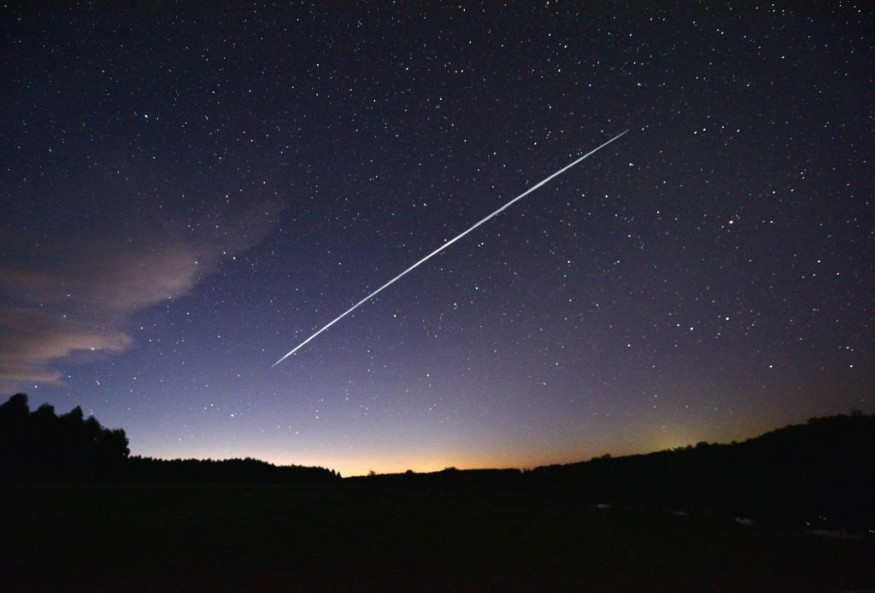Elon Musk stated on Tuesday that debris from a Russian missile test had to be avoided by SpaceX's Starlink satellites. However, their firm would still continue to launch the items atop Falcon 9 rocket this week.
On November 15, Science Times said Russia launched a missile at one of its satellites, triggering an explosion of debris that swept across Earth's orbit at a speed of nearly 10 times that of a bullet. Astronauts onboard the International Space Station sought refuge in their spacecraft, preparing to leave the station in the event of a tragedy.
Almost everything in Earth's orbit, including Starlink, a network of around 1,700 SpaceX internet satellites, is at risk from the new debris storms.
"We had to shift some Starlink satellite orbits to reduce probability of collision," Musk wrote on Twitter. "Not great, but not terrible either."
We had to shift some Starlink satellite orbits to reduce probability of collision. Not great, but not terrible either.
— Elon Musk (@elonmusk) November 30, 2021
Station & Dragon have micrometeorite shields (ultra high velocity impact absorption), but EVA suits do not, hence higher risk for spacewalk.
Space Debris Would Not Easily Disable Satellites, Experts Say
Smaller debris, on the other hand, may quickly disable a satellite. The spacecraft would gradually decrease altitude until it plummeted through Earth's atmosphere, where it would burn up due to friction. A contact with a bigger piece of Russian shrapnel might exacerbate the new debris issue.
"If [a satellite] gets hit by one of the bigger pieces of debris... it could completely destroy the satellite into thousands of more pieces," astronomer Jonathan McDowell, who tracks satellites and debris objects, told Insider after the missile test.

According to the US State Department (via Science Times), the Russian missile test produced over 1,500 pieces of debris big enough to be tracked from the ground. However, no one has yet recognized or tracked all of the huge objects. It might take several months.
As SpaceX expands its satellite network, debris avoidance will likely become more common. SpaceX has been granted permission to launch 12,000 of its Starlink satellites into orbit by the Federal Communications Commission, and the corporation has asked permission to launch another 30,000.
ALSO READ : Space Junk Cleanup Now Possible Thru Tiny AuroraSat-1 CubeSat To Be Launched Later This Year
SpaceX To Launch Starlink Satellites Amid Space Debris Threat
Local Space Force forecasts indicated Sunday that a SpaceX Falcon 9 rocket should launch this week into ideal weather near Cape Canaveral despite the space debris threat.
A Falcon 9 rocket carrying dozens of Starlink broadband satellites will launch at 6:20 p.m. ET Wednesday if weather conditions remain steady and personnel at Cape Canaveral Space Force Station's Launch Complex 40 stay on time. Requirements are 90 percent "go" during the immediate timeframe.
"A rather benign weather regime will remain in place across the Space Coast through the remainder of the weekend into the middle of next week," Space Launch Delta 45 forecasters said in a pre-launch report (via Florida Today). "There will be light winds during the launch window and limited low-level moisture. The primary concern for a Wednesday evening launch is a few cumulus clouds with onshore flow."
Following the separation of the first stage, SpaceX will attempt to recover the booster engine on a drone ship in the Atlantic Ocean, Space Coast Daily said.
Post-launch circumstances, including upper-level winds and weather in the Atlantic Ocean's booster recovery zone, were all rated as "low risk."
The excellent weather is expected to continue until Wednesday. If SpaceX needs extra time to prepare, the prognosis for a Thursday launch appears to be the same. At launch time, local temperatures are projected to be approximately 70 degrees Fahrenheit.
It is the 32nd launch for SpaceX's Starlink internet network, with over 1,700 operational satellites in low-Earth orbit. More than 100,000 clients have signed up for the company's user terminals and internet connection packages, which start at $499 for hardware and $99 per month after that.
Those interested in the Falcon 9's flight path should know that the rocket will tilt northeastward following liftoff.
RELATED ARTICLE : Russia Confirms Destroying Old Rocket; Tells NASA Anti-Satellite Missile Didn't Harm ISS Astronauts
Check out more news and information on SpaceX in Science Times.
© 2026 ScienceTimes.com All rights reserved. Do not reproduce without permission. The window to the world of Science Times.











